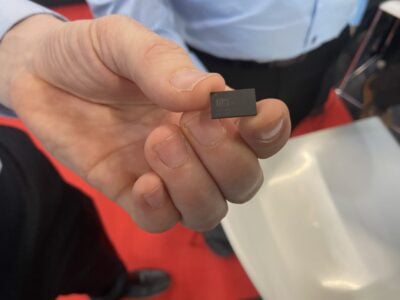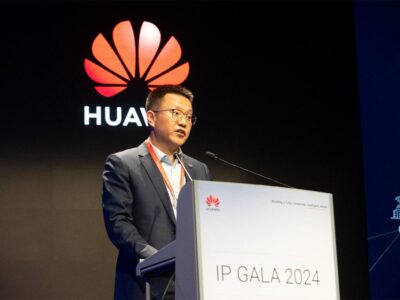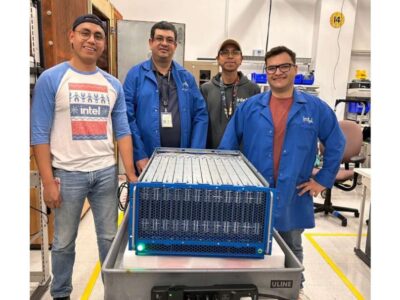
‘Holy grail’ physics discovery promises new electronic devices
Their findings center mostly on the discovery of a so-called “topological axion insulator” – a unique state of quantum matter that previously was only theorized to exist.
“The topological axion insulator has a miraculous ability that allows it to have very robust metallic or conducting electrons on its surface, even though the bulk of the material is insulating,” says physicist Arun Bansil, who led a team of researchers involved in the study. “It had only been predicted theoretically – now it’s been realized experimentally.”
The axion insulating state was realized, says Bansil, by combining certain metals and observing their magnetoelectric response. In this case, the researchers used a solid-state chip composed of manganese bismuth telluride, which were adhered together in two-dimensional layers, to measure the resulting electric and magnetic properties.
“It’s like discovering a new element,” says Bansil. “And we know there’s going to be all sorts of interesting applications for this.”
Such a finding, say the researchers, has implications for a range of technologies, including sensors, switches, computers, and memory storage devices, among many others. If scientists can integrate these new topological materials into future devices, the storage, transportation, and manipulation of magnetic data could become much faster, more robust, and energy efficient.
An emerging class of electronic devices – so-called spintronics – relies upon this manipulation of quantum structure through electron “spin.” Spin, also called angular momentum, describes a fundamental property of electrons defined in one of two potential states: up or down. The way the electrons spin influence the direction of the magnetic field at work in any solid.
While traditional electronics depend on batteries that store energy in the form of chemical energy, spintronic devices could harness magnetic energy from special kinds of materials – such as the manganese bismuth telluride chip used in the study – without the chemical reaction, making it much more efficient “candidate material” for future technology, says Bansil.
Spin batteries of this kind are still largely under development, but the researchers say they believe topological insulators could be the key to unlocking such technology. They have proposed spintronics as the way to solve a number of problems with today’s electronics, including issues of power consumption and operational speed in computers and other devices that rely on charge.
“There is no question the next generation of electronics will need to have low power consumption,” says Bansil. “When you discover new materials like this, that opens up the possibilities. These newer kinds of materials can help usher in entirely new technologies.”
For moere, see “Layer Hall effect in a 2D topological axion antiferromagnet.”
Related articles:
Exotic material promises lower-power electronics, quantum computing
Topological magnet exhibits exotic quantum effects
Logic switch uses no electric current for ultralow-energy computing
New material class promises zero-ohm conductivity
 If you enjoyed this article, you will like the following ones: don't miss them by subscribing to :
eeNews on Google News
If you enjoyed this article, you will like the following ones: don't miss them by subscribing to :
eeNews on Google News




